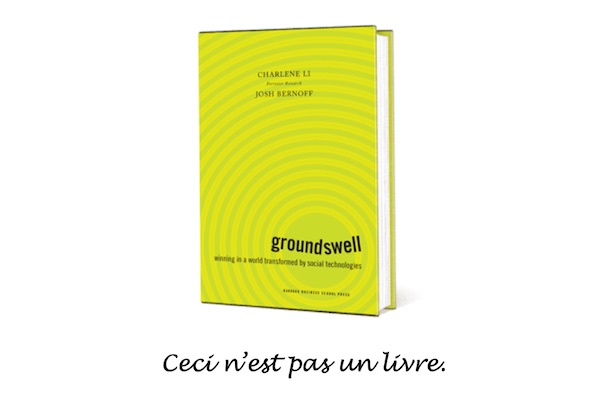Your book is not a book
With a nod to René Magritte, the book you write is not a book.

Magritte’s painting is actually called La Trahison des images (“The Treachery of images”) and includes the words Ceci n’est pas une pipe (“This is not a pipe”). Because, of course, it’s not a pipe. It’s a painting.

But enough about Magritte. What about your nonfiction book?
If your book is not a book, what is it?
Here are few ways to think about the book you’re writing.
- A book is the largest possible lump of content marketing. Content marketing is useful or entertaining content intended to make people pay attention to you or trust your authority. A book the weightiest way to make that point; it establishes you as an expert. People who read it may seek you out for help. People who know about it, even if they don’t read it, will likely see it as reinforcing your authority.
- A book is you. A book with your name on it is you. It is a physical (or digital) manifestation of who you are and what you believe. If it is brilliant, you are brilliant. If it is entertaining, you are entertaining. If it is helpful, you are helpful. And if it is poorly organized, repetitive, or wrong, you are a weak-minded idiot.
- A book is a block of your time and money. A book requires many hours of research, writing, and rewriting. Even if you hire a ghostwriter, it demands that you pay attention to what belongs in it. It sucks up your money in the form of editorial resources, promotional expenses, lost opportunities, and, if you use a hybrid or custom publisher, actual out-of-pocket dollars.
- A book is needy. Even after it’s written, it needs feeding. It needs bylined articles, supporting blog posts, or spreadable infographics. It needs speeches. It needs your time with journalist/reviewers, bloggers, and podcasters. Eventually, it needs updating. It gives — but it takes, too.
- A book is an obsession. Read any acknowledgments page, where the authors thank their families for putting up with how they became much less available while writing. A good book requires extra effort to find the best examples, identify supporting points, root out errors, and maintain a constant commitment to quality from start to finish. Unless you pay obsessive attention, it won’t be as good as it needs to be.
Don’t half-ass it
Read those bullet points and you realize something.
If you’re going to do this, you’d better do it right.
You’d better find the sharpest, clearest, most differentiated idea and then be diligent about making it the best it can be.
Because if you half-ass it, it shows. Not only will your book fail to represent you effectively — it will show the world that your thinking is casual and weak.
If a book is content marketing, is you, is your time and money and effort and obsession — then shortchanging it means everyone will learn you’re a fraud.
That’s a very expensive way to self-destruct.
Once again, Josh, your delivery of literary truth is timely and refreshing. The book I’m working on right now will be better for it. I mean it, and I thank you!
Love the post, Josh. (And you had me at the Magritte reference.)
There’s one other thing I’d add:- a book is an act of generosity, a gift of service to readers. That’s one more reason not to half-ass it.